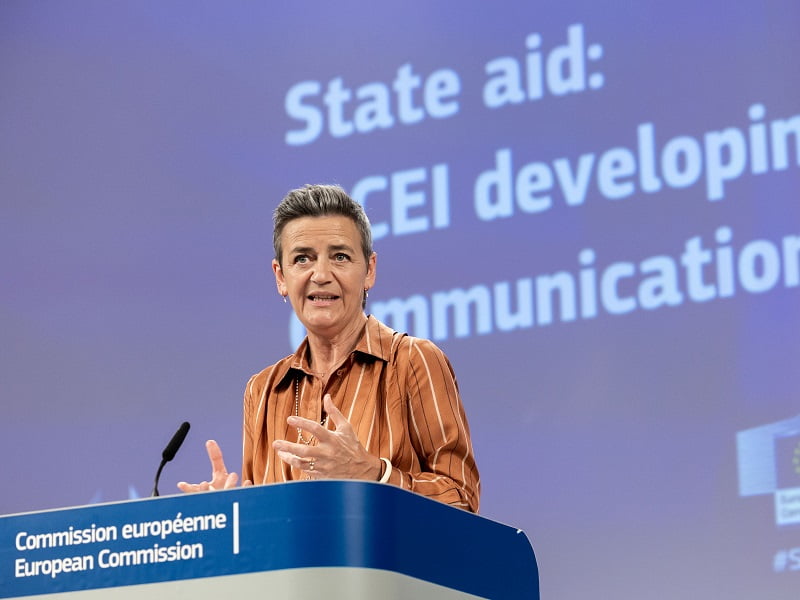Europe will spend €8.1 billion euros (A$13 billion) in state aid on semiconductor research, development and production as part of a new funding package designed to aid the green and digital transition.
The European Commission approved the microelectronics and communication technologies project on Thursday, with the billions in funding set to flow to 56 companies, including SMEs and startups, that are working to develop chips, processors and sensors.
Public funding will be provided by 14 European Union member states: Austria, Czechia, Finland, France, Germany, Greece, Ireland, Italy, Malta, the Netherlands, Poland, Romania, Slovakia and Spain.
It follows agreement in April on the European Chips Act, which aims to strengthen European competitiveness and supply chain resilience, and €7.4 billion in subsidies for chipmakers STMicroelectronics and GlobalFoundries to construct new manufacturing facilities in France.

The project – the largest Important Project of Common European Interest (IPCEI) project to be approved by member states to date – is expected to generate another €13.7 billion of private investment, as well as directly create up to 8,700 highly-skilled jobs.
As many as 30 other “associated participants,” including universities and research organisations, will be involved in the project, bringing Norway and five additional member states – Belgium, Hungary, Latvia, Portugal and Slovenia – into the project.
“Microchips are the backbone of the innovation and of Europe’s industrial competitiveness in the digital world. The green and digital transitions require new, advanced technological solutions,” European Commission executive vice-president Margrethe Vestager said.
“And this is why we must increase Europe’s own chip research, development and production capabilities. We need to be pioneers and develop truly innovation solutions and their first industrial deployment in Europe.”
The 68 “innovative projects” that have been funded as a result of the IPCEI span four interconnected workstreams: Sense, think, act, and communicate. All four workstreams are aimed at “enabling research and development of innovative resource-efficient technologies and components”.
As the names suggests, the sense workstream will focus on the development of novel sensors capable of translating analogue signals into data, while the think workstream will “work on the ‘brain’ of microelectronic systems, namely processors and memory chips”.
One of the startups funded in the think workstream aims to “make the data transfer between chips 10 to 100 times faster than what we can do today” using “graphene, a one-atom thin layer of carbon with outstanding electrical and optical qualities,” Ms Vestager said.
In the act and communicate workstreams, companies will focus on “new designs and innovative materials for highly efficient and performant components”, and deliver novel technologies for “rapid, secure and reliable communication that has been processed under the think workstream”.
As part of the support package, the Commission has backed-in a claw-back mechanism, meaning that large beneficiaries will “return part of the aid received if their projects turn out to be more profitable than foreseen.” Companies will also be expected to share the results of their projects widely.
The IPCEI is the sixth to be signed off by EU member states. IPCEIs are projects that “may represent a significant contribution to economic growth, jobs, the green and digital transition and competitiveness for the Union industry and economy”, according to the Commission.
The Commission is currently working with member states on four upcoming IPCEIs in health, cloud and hydrogen, with additional IPCEIs also being designed for other key technologies, Ms Vestager said.
In December 2018, the Commission approved the first IPCEI in the microelectronics sectors. It was focused on “improving energy efficiency, reliability and accuracy of chips”, with technology developed as part of the project now being scaled by STMicroelectronics and GlobalFoundries.
Do you know more? Contact James Riley via Email.

